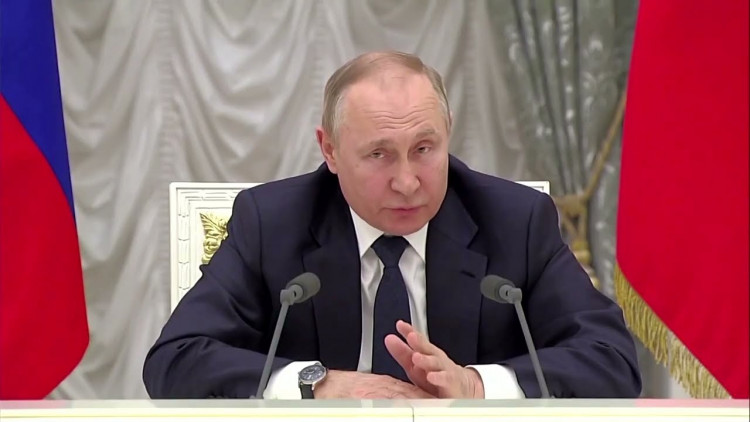The United States has strongly rebuked Russian officials for their claims linking last week's deadly attack on the Crocus City Hall music venue in Moscow to "Ukrainian nationalists." White House national security spokesman John Kirby labeled the Russian allegations as "nonsense propaganda," comparing the officials to "manure salesmen."
"My uncle used to say that the best manure salesmen often carry their samples in their mouths. Russian officials seem to be pretty good manure salesmen," Kirby told reporters on Thursday.
The attack, which claimed the lives of at least 143 people, has been claimed by the ISIS-K terror group, an offshoot of the self-styled "Islamic State" based in Afghanistan. Despite the group releasing videos on its propaganda channels seeming to show perpetrators in the act, Russian investigators have insisted on a connection to Ukraine, claiming that the attackers received significant cash and cryptocurrency from the country. However, they have not provided evidence to support their claims.
The shock of the March 22 tragedy has left Moscow and the entire country in deep mourning, with Russian state media reporting 360 people injured, including 11 children, as of Wednesday. While investigations are ongoing, the attack has brought scrutiny upon Russia's security and intelligence services, particularly the FSB, the successor agency to the Soviet-era KGB tasked with counterterrorism.
Experts suggest that the FSB's failure to foil the attack plot can be attributed to tunnel vision, with the agency's attention divided due to its focus on the war in Ukraine. The Institute for the Study of War (ISW), a U.S. think tank, described the attack as a "notable Russian intelligence and law enforcement failure."
Notably, the U.S. had warned Russia about a planned terrorist attack in Moscow weeks before the incident, even issuing a public statement to American citizens in Russia on March 7. The White House confirmed that it had passed this intelligence on to Russian authorities, raising questions about why the Russian intelligence and security agencies appeared to have done little with the information.
Former Ukrainian security service officer Ivan Stupak and Callum Fraser, a research fellow at the U.K.'s Royal United Services Institute think tank, both point to the FSB's misdirected focus on Ukraine, the U.S., and the U.K. as a reason for the intelligence failure. "Now, practically every facet has been pushed into the war effort," Fraser told Newsweek.
The Kremlin's response to the attack has been confused and contradictory. While Russian President Vladimir Putin acknowledged that "radical Islamists" were behind the attack, he still sought to tie the U.S. and Ukraine to the incident. Russian state media reported that the four suspects were from Tajikistan, a country with historic ties to Russia, but they appeared in court bearing visible signs of torture, which the Kremlin declined to comment on.
Adding to the confusion, Belarusian President Alexander Lukashenko, a strong Putin supporter, contradicted the Kremlin's narrative by saying the attackers had fled toward Belarus, not Ukraine.
As the FSB's reputation comes under scrutiny, experts believe that the consequences for the agency are murky. While there may be a greater physical and more visible security presence, the ongoing war in Ukraine is likely to continue occupying much of the FSB's time and resources.
The ISW think tank concluded that Moscow's authorities have "not fully figured out how to reconcile its information operations with the reality of its intelligence and law enforcement failure." As the investigation into the attack continues, the Kremlin's contradictory rhetoric and the FSB's apparent failures in preventing the tragedy are likely to remain under the spotlight.




